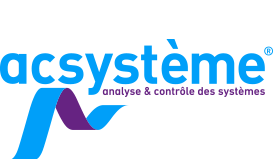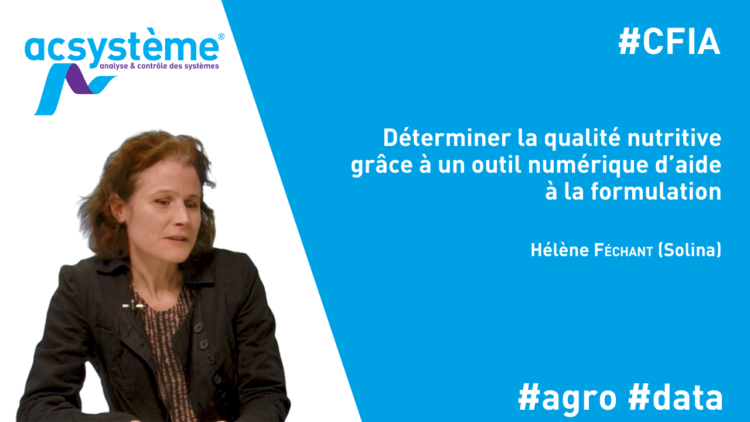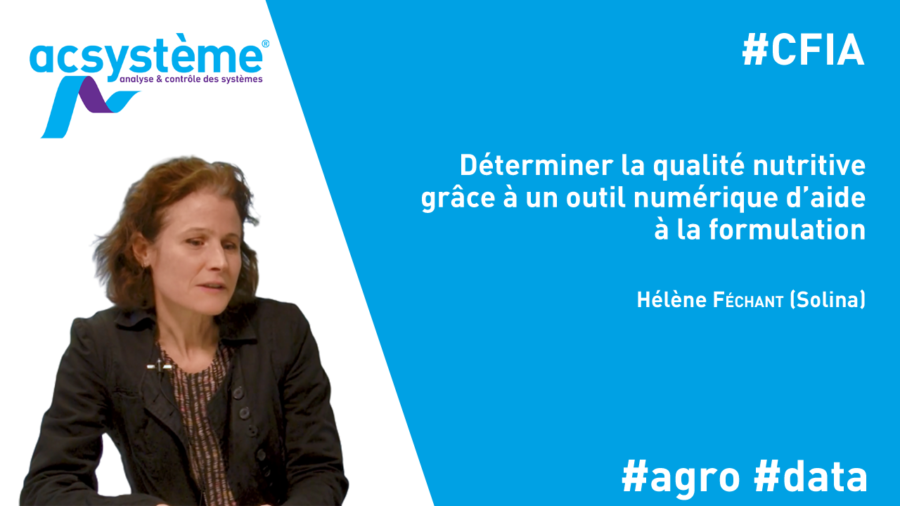– Hello Hélène, please introduce yourself.
Hello, I am Hélène Féchant, I have worked with Solina for 22 years. I first worked in research and development, working with engineers, butchers, cooks, and I also worked in nutrition.
– Determining nutritional quality using a digital formulation aid tool: how is this is a challenge for Solina?
Solina formulates more than 1500 recipes per month. The entire team must first focus on the products and their applications. Everything that is calculated must be automated. We have 300 to 500 pieces of information per raw material: allergens, nutritional values, contaminants, geographical origins, origins of animal derivatives, plant derivatives, etc. All these calculations are performed by tools. It is therefore key for us to improve our digital tools constantly to focus on the manufacture of a good product.
– Can you present the Meatyl@b project as well as the different actors who participated in this project?
Metayl@b is a project started in 2017 with the aim of getting computer scientists and mathematicians to work together with agri-food players and, as part of a consortium, to have academic researchers work with companies.
It was very important for us to have taken this time, to align our vocabularies and transfer knowledge. With the Meatyl@b project, we worked on the functionality of plant proteins to be able to formulate products with less animal protein and more plant protein. These were Groupe Avril’s sunflower proteins. This enables us to source French proteins to respond to environmental issues of reducing meat consumption. Digital helps us do this!
It helps us understand the product information. This information can be modelled and therefore ensure that we focus on other issues, which are those of application by our customers and product quality.
What I found revealing was when I saw the data scientists and automation engineers at Acsystème explaining to me how to make brine or develop a knack. The gamble paid off, and we had with us digital people capable of understanding the problems of the agri-food industry.
– How has scientific computing and Data Science been a relevant support for Solina?
Data science is important in the agri-food industry in general, at Solina in particular, because there are more and more consumer transparency requirements. They want to understand and know the nutritional values of products, such as the Nutri-score. We also have to work on tools like the Yuka score. Food companies ask us to work with these applications, on product reformulation to improve scores.
This generates many calculations to be made. In food research and product formulation, people carry out many iterations by constantly moving from the computer to the laboratory. Simulation tools and data science will enable us to reduce these iterations. We have worked on this within the framework of Meatyl@b, particularly with INRAE and Acsystème.
– What is Nutri-score and how do algorithms help developers in the agri-food industry?
Nutri-score is a way for the consumer to understand and interpret nutritional values properly. A person who is not necessarily highly educated in nutrition will not be able to interpret this easily. The Nutri-score helps the consumer to make decisions quickly, without being a nutritionist.
Developers who are cooks, pork butchers, and also engineers and technicians, will set the constraints. They are firstly regulatory and finally the constraints of the customer and the consumer: for example, allergen-free or with an optimised Nutri-score. Using these constraints they will formulate and constantly make calculations on the results of these formulas.
Sometimes for fun, I talk about the augmented developer but it’s because in fact he is augmented by the power of algorithms and calculations. As humans, we cannot work with 300 to 500 pieces of information to be calculated constantly. The algorithms will make it possible to simplify this part to offer the most optimised formula possible directly. This enables the developer to concentrate in the laboratory, on his bench, in his kitchen, on the realisation of a good product that suits the customer well.


